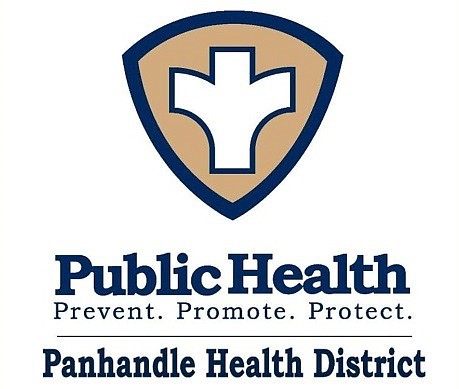Answers to testing questions
This is a series about COVID-19 preparation and regional updates. Check The Press daily for new information, tips, and ways our health care professionals are working to keep our community safe.
Q: What’s the difference between sampling and testing for COVID-19?
A: Sample means a swab has been taken either by your doctor, Kootenai Health’s or Bonner General’s Emergency Department tent crew, or Kootenai’s offsite drive-thru facility. That sample is then sent to any of the laboratories that are accepting COVID-19 samples for testing.
Q: How do you test a person for COVID-19?
A: The Idaho Bureau of Laboratories and other private labs are able to conduct testing of samples. A person’s doctor will assess and arrange the collection of a sample if someone meets the criteria to be tested. The sample will be sent to a lab to be tested. Ask your provider about fees for taking the sample.
Public health epidemiologists will prioritize testing that is sent to Idaho Bureau of Laboratories. High priority will be given to specimens from symptomatic people who meet one or more of the following criteria:
•had close contact with a person with a confirmed COVID-19 infection
•recently traveled to an area with widespread community transmission of COVID-19 (China, Iran, Italy, South Korea)
•have severe respiratory illness of no known cause
•are health care workers
•are long-term care facility residents with respiratory disease and negative influenza testing.
Other specimens, such as those from patients with mild respiratory symptoms and no known exposures, will have standard testing priority. Testing at IBL is not offered for people who do not have symptoms. Samples sent to private labs do not need to go through the health district for prioritization.
Q: How will I find out my results?
A: Your provider will notify you of your results.
Currently, any patient with a positive test result for COVID-19 will be contacted by local public health and advised on monitoring and movement restrictions after they have been notified by the provider of their result.
Q: Does PHD offer testing?
A: When you call our call center and you are categorized as medium or high risk, one of our clinic staff will further evaluate your travel history and symptoms. After speaking with the provider, if you meet the criteria, the provider can write an order for testing. Please note that testing for asymptomatic people is not recommended at this time.
Q: Where can I find out the number of people being tested in Idaho?
A: The state of Idaho is posting updates on their site with the number of people being monitored and the number of people tested through the Idaho Bureau of Laboratories. The link is www.coronavirus.idaho.gov.
Q: Kootenai Health set up a tent outside of their emergency department. Can I be tested there?
A: With a doctor’s order, or in an emergency, an individual could go to the tent to be further assessed and a sample may be taken if they feel it is medically necessary.
Q: What’s going on at 2207 Ironwood Place across the street from Kootenai Health?
A: Kootenai Clinic has opened a new specimen collection site located at 2207 Ironwood Pl. in CDA, for suspected COVID-19 infections and flu/RSV. Physicians will use an algorithm provided by Kootenai Health to determine whether an individual should be tested at this location. The purpose of the special collection site is to safely collect appropriate samples from patients suspected of these respiratory ailments by staff in full protective cover. Hours are 9 a.m. – 8 p.m., seven days a week.
Q: How can COVID-19 be prevented or treated?
A: There are currently no vaccines or drugs approved to treat or prevent COVID-19. Although there are investigational COVID-19 vaccines and treatments under development, these investigational products are in the early stages of product development and have not yet been fully tested for safety or effectiveness.
The FDA reminds consumers to be cautious of websites and stores selling products that claim to prevent, mitigate, treat, diagnose or cure COVID-19. Fraudulent COVID-19 products may come in many varieties, including dietary supplements and other foods, as well as products purporting to be drugs, medical devices or vaccines. Products that claim to cure, mitigate, treat, diagnose or prevent disease, but are not proven safe and effective for those purposes, defraud consumers of money and can place consumers at risk for serious harm. Using these products may lead to delays in getting proper diagnosis and treatment of COVID-19 and other potentially serious diseases and conditions.
While COVID-19 is making waves worldwide, in most cases it is manageable at home – much like the flu. You can find the information from this article as well as the latest updates and ways to protect yourself at cdc.gov/covid19.

